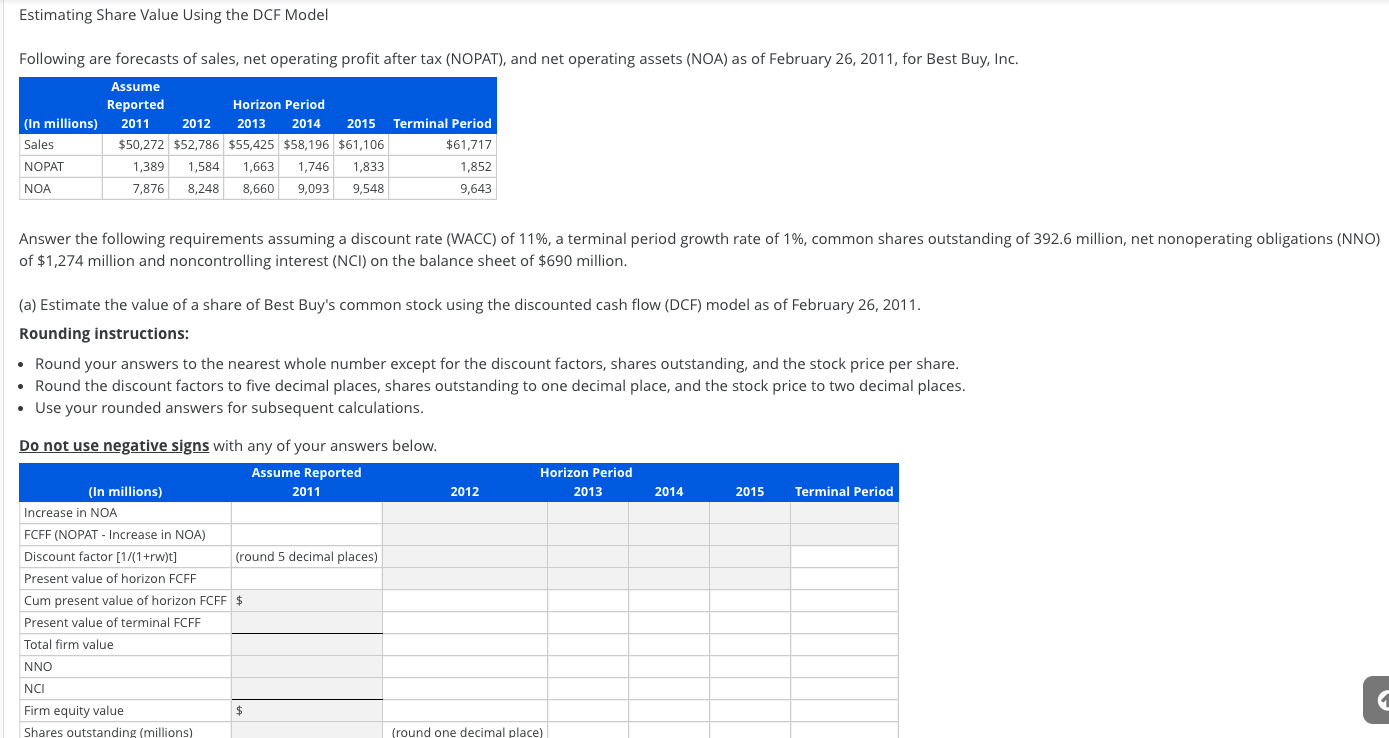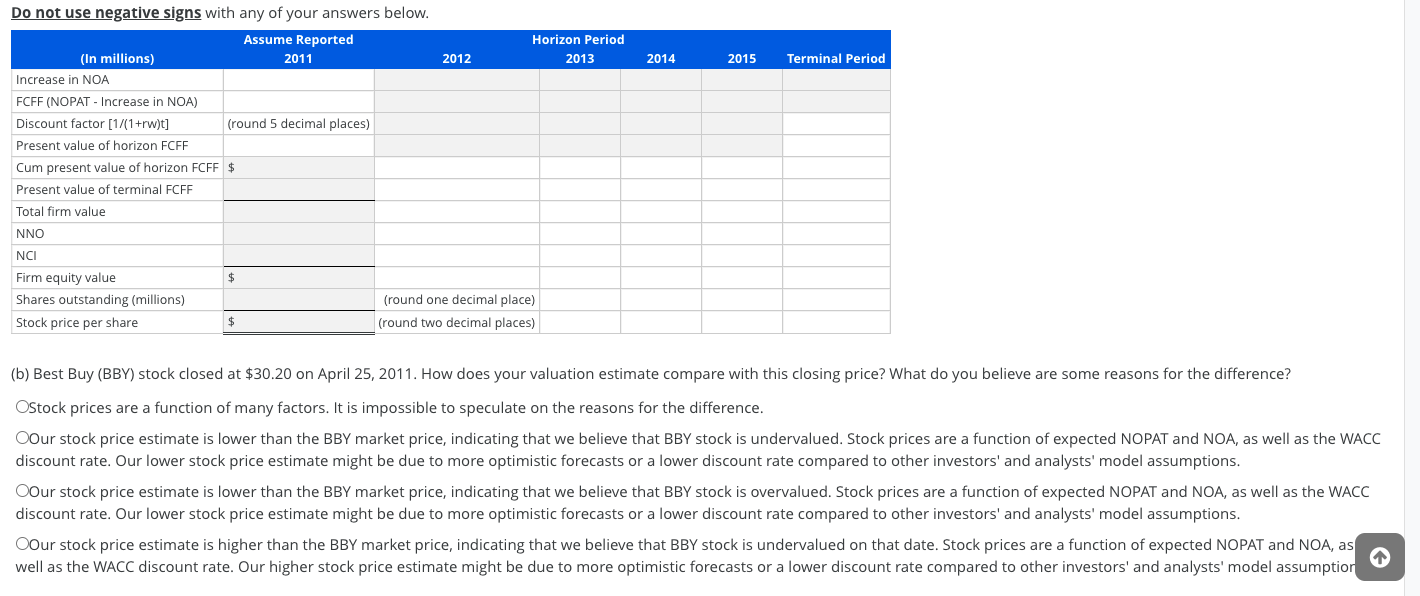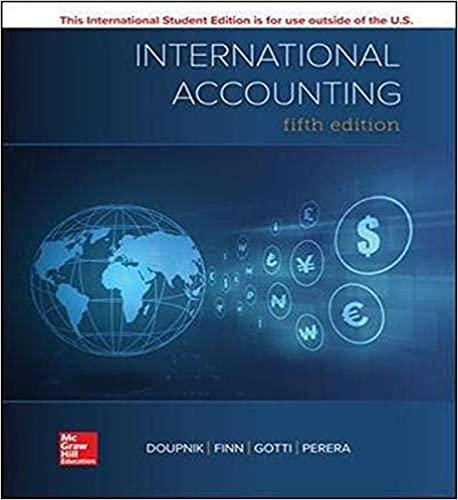

Estimating Share Value Using the DCF Model Following are forecasts of sales, net operating profit after tax (NOPAT), and net operating assets (NOA) as of February 26, 2011, for Best Buy, Inc. (In millions) Sales NOPAT NOA Assume Reported Horizon Period 2011 2012 2013 2014 2015 Terminal Period $50,272 $52,786 $55,425 $58,196 $61,106 $61,717 1,389 1,584 1,663 1,746 1,833 1,852 7,876 8,248 8,660 9,093 9,548 9,643 Answer the following requirements assuming a discount rate (WACC) of 11%, a terminal period growth rate of 1%, common shares outstanding of 392.6 million, net nonoperating obligations (NNO) of $1,274 million and noncontrolling interest (NCI) on the balance sheet of $690 million. (a) Estimate the value of a share of Best Buy's common stock using the discounted cash flow (DCF) model as of February 26, 2011. Rounding instructions: Round your answers to the nearest whole number except for the discount factors, shares outstanding, and the stock price per share. Round the discount factors to five decimal places, shares outstanding to one decimal place, and the stock price to two decimal places. Use your rounded answers for subsequent calculations. 2014 2015 Terminal Period Do not use negative signs with any of your answers below. Assume Reported Horizon Period (In millions) 2011 2012 2013 Increase in NOA FCFF (NOPAT - Increase in NOA) Discount factor [1/(1+rw)t] (round 5 decimal places) Present value of horizon FCFF Cum present value of horizon FCFF $ Present value of terminal FCFF Total firm value NNO NCI Firm equity value $ Shares outstanding (millions) (round one decimal place) Horizon Period 2013 2012 2014 2015 Terminal Period Do not use negative signs with any of your answers below. Assume Reported (In millions) 2011 Increase in NOA FCFF (NOPAT - Increase in NOA) Discount factor [1/(1+rw)t] (round 5 decimal places) Present value of horizon FCFF Cum present value of horizon FCFF $ Present value of terminal FCFF Total firm value NNO $ NCI Firm equity value Shares outstanding (millions) Stock price per share (round one decimal place) (round two decimal places) $ (b) Best Buy (BBY) stock closed at $30.20 on April 25, 2011. How does your valuation estimate compare with this closing price? What do you believe are some reasons for the difference? Stock prices are a function of many factors. It is impossible to speculate on the reasons for the difference. OOur stock price estimate is lower than the BBY market price, indicating that we believe that BBY stock is undervalued. Stock prices are a function of expected NOPAT and NOA, as well as the WACC discount rate. Our lower stock price estimate might be due to more imistic forecasts or a lower discount rate compared to other investors' and analysts' model assumptions. OOur stock price estimate is lower than the BBY market price, indicating that we believe that BBY stock is overvalued. Stock prices are a function of expected NOPAT and NOA, as well as the WACC discount rate. Our lower stock price estimate might be due to more optimistic forecasts or a lower discount rate compared to other investors' and analysts' model assumptions. OOur stock price estimate is higher than the BBY market price, indicating that we believe that BBY stock is undervalued on that date. Stock prices are a function of expected NOPAT and NOA, as well as the WACC discount rate. Our higher stock price estimate might be due to more optimistic forecasts or a lower discount rate compared to other investors' and analysts' model assumption








